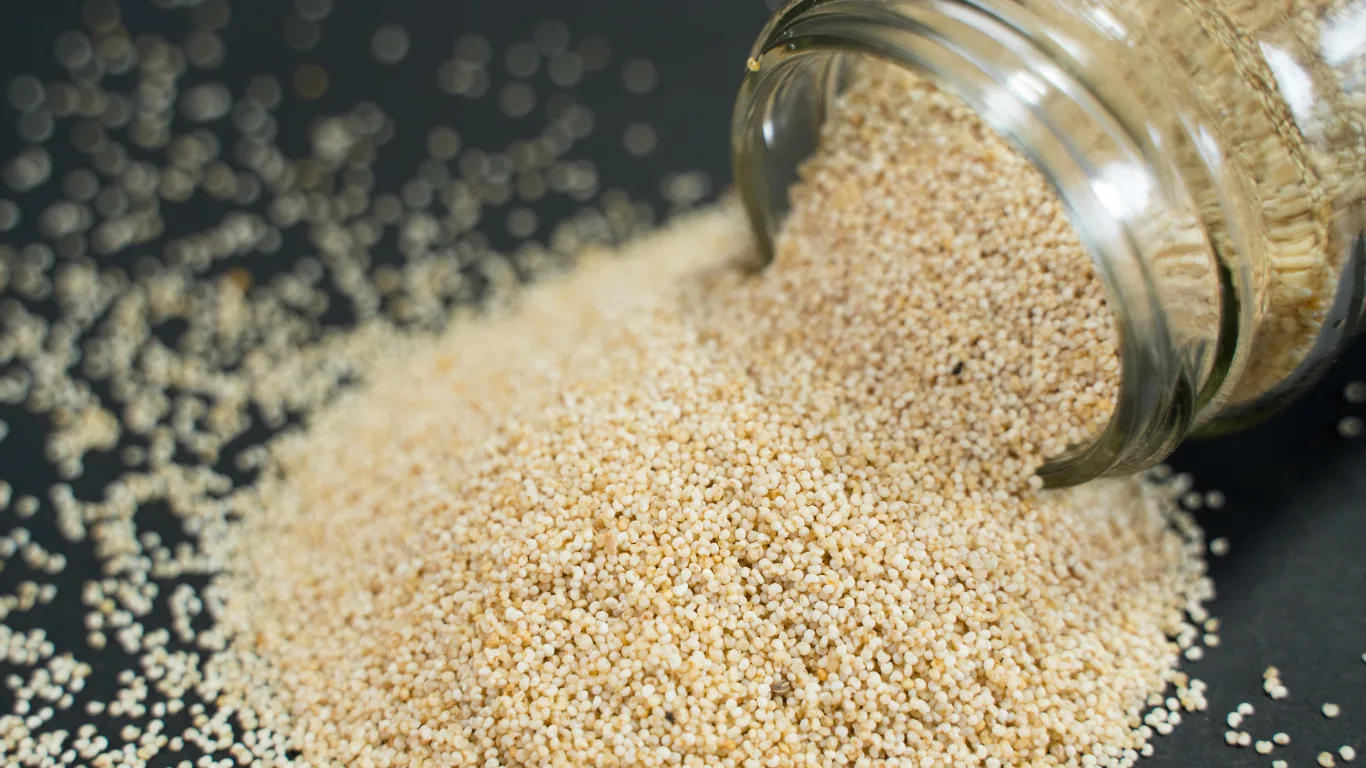How poppy seeds are produced? The journey starts on farms, where these tiny, nutrient-packed seeds are carefully cultivated, harvested, and processed before reaching your kitchen. Poppy seeds are significant in various cuisines, from Indian curries to European pastries. But can you get seeds from poppy seeds? This fascinating question connects to the meticulous steps involved in their farming, where expert techniques ensure quality and sustainability. Poppy seeds, with their delicate texture and nutty flavour, play a significant role in a variety of cuisines, from Indian and Middle Eastern to European and beyond. Whether used in baking, cooking, or traditional medicine, poppy seeds hold cultural and culinary significance.
The Origins of Poppy Seeds
Poppy seeds have a significant history, valued for centuries by civilizations across Asia and Europe for both culinary and medicinal purposes. These tiny seeds come from the Papaver somniferum plant, which flourishes in temperate climates, making regions like Asia and parts of Europe ideal for cultivation. The growth cycle of the poppy plant begins with planting in cooler seasons; as the plants mature, they produce flowers that form seed pods. When fully ripened, these pods release thousands of seeds, continuing a tradition of cultivation that brings distinctive flavour and texture to dishes worldwide.
How Poppy Seeds Are Made and Processed
Understanding how poppy seeds are produced reveals the meticulous steps involved in bringing these tiny, flavorful seeds to our kitchens. The process begins with planting the seeds in well-prepared soil during cooler seasons. As the poppy plants grow, they require regular care to ensure healthy development, including adequate sunlight, water, and periodic weeding. Once the plants mature, they develop beautiful flowers that eventually form seed pods. When these pods ripen, they are carefully harvested, and the seeds are extracted and dried for culinary use. This careful process highlights how poppy seeds are made, ensuring that only the finest seeds reach our tables.
Poppy Seed Dispersal Mechanisms
Poppy plants have fascinating natural mechanisms for seed dispersal, ensuring their reproduction in the wild. How poppy seeds are dispersed primarily relies on wind and, to a lesser extent, animals, which help scatter the seeds over a wide area. The seed pods, once fully matured, burst open to release thousands of tiny seeds that are carried by the breeze, allowing the plants to spread and thrive in various environments. Poppies have a remarkable self-seeding ability, meaning they can regenerate year after year without needing to be replanted. Beyond their adaptability in nature, many wonder is poppy seeds good for health? Indeed, these seeds are rich in nutrients, providing essential oils, antioxidants, and a host of health benefits when consumed in moderation.
How to Grow Poppy Plants from Seeds
Growing poppy plants from seeds is a process that begins with proper seed preparation and soil selection. Can you get seeds from poppy seeds? Yes, by harvesting mature pods and collecting the tiny seeds for planting. When planting, can you scatter poppy seeds directly on the soil? Yes, scatter the seeds lightly on well-drained soil, ensuring they are not buried too deeply. Keep the soil moist, but not soggy, and ensure plenty of sunlight. As seedlings grow, thin them to allow for proper spacing. With the right care, your poppies will thrive, producing beautiful flowers and seeds for future growth.
Commercial Techniques in Poppy Seed Production
How poppy seeds are produced on a commercial scale involves advanced techniques aimed at maximizing yield and efficiency. Countries like India, Australia, and Turkey are known for large-scale poppy cultivation, where mechanized farming practices and meticulous processing methods are employed. In these regions, poppy fields are carefully managed to ensure optimal conditions for growth, with farmers utilizing modern irrigation systems, precision planting, and pest control measures to boost productivity. Additionally, advanced harvesting equipment is used to efficiently collect mature pods, ensuring high-quality seeds are produced for global markets. These commercial techniques play a crucial role in meeting the growing demand for poppy seeds in culinary and medicinal industries worldwide.
Conclusion
Understanding how poppy seeds are produced reveals the fascinating journey from cultivation to harvest. Whether you are intrigued by the process of planting your own poppy seeds at home or prefer the convenience of enjoying the culinary benefits of commercially harvested seeds, there is something rewarding about incorporating poppies into your life. If you are wondering, can you get seeds from poppy seeds? Yes, harvesting them from mature pods allows you to grow your own vibrant poppy plants. For those who prefer a more convenient option, poppy seeds online provide an easy way to access these nutritious and flavorful seeds. Whether you are planting or cooking, poppy seeds offer a delightful addition to any kitchen or garden.


Comments are closed.